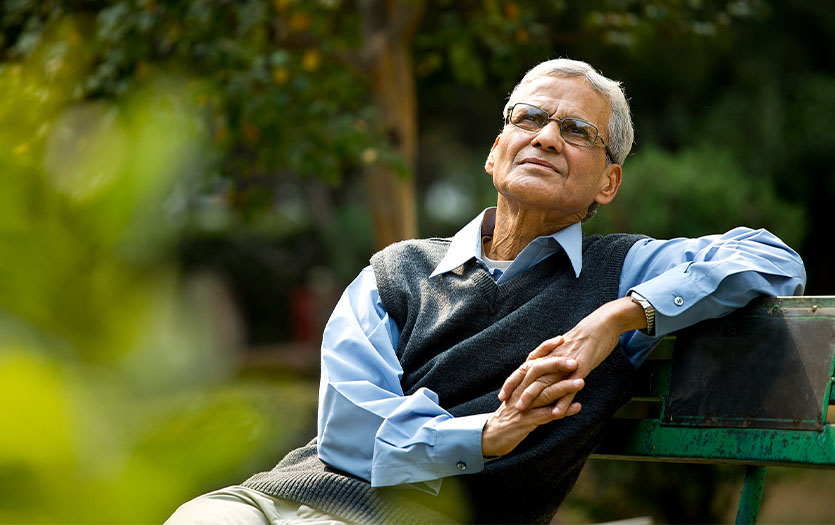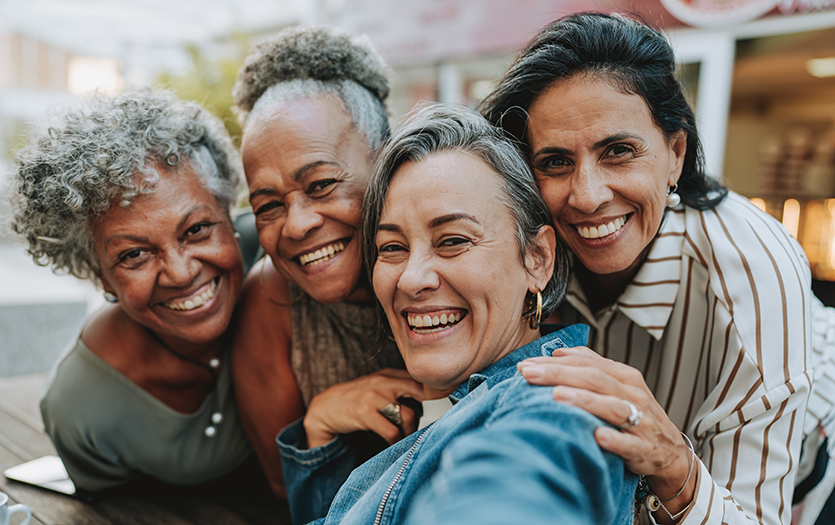
This post was written by Melissa Blackmer, MSEd, LMFT, LMHC, MBA, clinical programs manager, Park Center, Parkview Behavioral Health Institute.
As you walk through your favorite store during the holidays or flip through radio stations, you are likely to hear Andy Williams singing:
It's the most wonderful time of the year
With the kids jingle belling
And everyone telling you to be of good cheer
It's the most wonderful time of the year
However, maybe this song overwhelms your soul as you try to reconcile the holidays with loss. Perhaps this holiday, you resonate better with Elvis Presley as he sings:
I'll have a blue Christmas without you
I'll be so blue just thinking about you
Decorations of red on a green Christmas tree
Won't be the same, dear, if you're not here with me
Loss can mean different things to different people. It can be losing a relationship with a friend, a significant other, parent or sibling. It can be the loss of a job or a house. Loss can also be death from something as unexpected as a car accident or the death of a loved one by suicide. It could even be someone’s long battle with cancer or a short bout with COVID.
Loss is tough, and it drains a person’s emotional bank. The holidays often leave a person trying to make a withdrawal for emotional strength, but it just doesn’t seem to be there. The reserves are gone, and it can feel daunting and hopeless. Finding the spirit of the holidays can be oh so very hard.
That’s why I’m here to say: It is ok not to be ok.
Our society often endorses positive psychology to the point of toxicity. Statements like, “You’ll be fine,” “This too shall pass,” “You just need to let it go,” or “Look on the bright side” are not only annoying – they are also invalidating the human experience. To be human is to both love and to lose. Invalidating comments can be made by others, but these comments can also become your internal dialogue with yourself. This can be equally toxic and shaming.
The holidays can make grief and loss feel like the heaviest of blankets. The feelings of anxiety, depression and loneliness may smother you. However, the holidays can also provide an abundance of hope. The holidays can be a time of self-compassion and grace.
What does that mean? Self-compassion means giving yourself the same kindness and care you would provide a good friend. I don’t know about you, but the first time I heard this definition, I winced because wow, it’s natural to comfort and take care of a friend, but it’s not so easy to extend that same type of grace to myself. It can feel counterintuitive to take that pause when we live in a world that pressures us to keep moving, achieving and climbing. However, when a person fails to take care of the body and mind, it does more harm than good. It’s healthy and vital to press pause, take a break and participate in self-care. Extending compassion to yourself after a loss, whatever that may be, is essential.
With that in mind, here are some tips on how to extend yourself grace and self-compassion during the holiday season:
- Prepare yourself for social events coming up. Remember, not everyone will understand your feelings or validate them. Mentally preparing for this type of encounter can be helpful.
- Take note of your thoughts and feelings. In Mental Health First Aid, participants train to become experts at noticing others’ feelings and behaviors. I like to offer this challenge to individuals. Take the time to notice how you think and feel. If your thoughts are riddled with negativity, it can be challenging to make space for self-compassion and grace.
- Replace negative thoughts. Find gentle ways to redirect your thoughts when you notice negative thoughts creeping in. Often, these negative feelings are not the truth and can hinder your progress. Instead, identify 2-3 things you can say to yourself that are true and kind, especially when you notice those destructive thoughts invading your mind.
- Feel those feelings! Suppressing your feelings can lead to physical symptoms like nausea and headaches. Also, if you ignore your feelings for too long, they often come out as explosions. It’s better to acknowledge your feelings. Sit with them and remind yourself that no feeling is forever. Feelings of sadness and loss can be uncomfortable, but they are very important. Accepting those feelings can help your body and mind process what’s happening. If that makes you uncomfortable, consider scheduling a time each day to check in with yourself and recognize your feelings.
- Dedicate time to yourself for restoration. Give yourself the space you need to process things, embrace your feelings, and rest. Taking purposeful pauses can create a rhythm of mindful self-compassion.
- Continue traditions that honor your loved ones. Engage and gather with those close to you. Honoring traditions during the holidays is an opportunity to remember those lost.
- Ask for help. The holidays can be overwhelming and stressful, even in a good year. Those feelings can get multiplied if you are processing a loss. Remember, it’s ok not to be ok and ask for help. If you are struggling with anxiety, depression or suicidal thoughts, please reach out. You can call the Parkview Behavioral Health HelpLine at 260-471-9440 or 800-284-8439, anytime 24 hours a day. Our experienced specialists can answer your questions, provide recommendations and help arrange care.
Last but certainly not least, it’s essential to know that anyone can assist an individual experiencing a mental health crisis, including suicidal thoughts. When it comes to mental health, early intervention can save a life. CPR saves lives during a cardiovascular emergency, just as learning QPR can save a life if a mental health emergency occurs. QPR stands for Question, Persuade and Refer, a technique used to recognize the signs that someone is at risk of suicide, offer hope to that person, and refer them to the care they need. If you are interested in becoming QPR trained, Parkview offers free training.
For upcoming QPR Suicide Prevention Technique classes, dates and times, or to register please visit the Classes & Events page.



